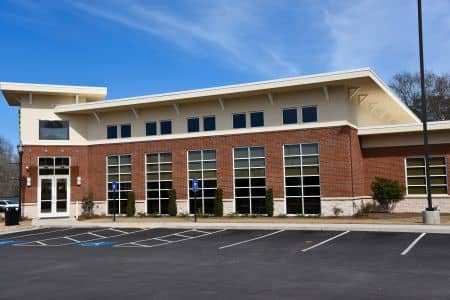Choosing Between Asphalt and Concrete: Which Is Right for Your Project?

When planning a paving project, one of the biggest decisions you'll face is choosing between asphalt and concrete. Both materials have their advantages, but their differences in durability, cost, and heat resistance can significantly impact your decision. Understanding how these materials perform in various conditions will help you determine the best option for your needs.
Asphalt vs. Concrete: A Quick Comparison
Before diving into specifics, it’s essential to understand the fundamental differences between asphalt and concrete. Asphalt is a mixture of aggregate and bitumen, giving it a flexible, blacktop appearance. Concrete, on the other hand, consists of cement, sand, and gravel, resulting in a harder, lighter-colored surface.
While both materials are durable and widely used, their reaction to heat is a crucial factor in deciding which one is right for your project.
Heat Resistance: How Asphalt and Concrete React to Temperature
One of the most significant differences between asphalt and concrete is how they handle heat. If you live in an area with extreme temperature fluctuations or intense sunlight, this factor should weigh heavily on your decision.
- Asphalt absorbs heat – Because of its dark color, asphalt retains more heat than concrete. This can make it uncomfortable to walk barefoot in hot weather and may contribute to softening and cracking over time.
- Concrete reflects heat – Concrete’s lighter color helps reflect sunlight, keeping the surface cooler in the summer. This makes it a great choice for areas where excessive heat retention is a concern.
Thermal Expansion Matters
Concrete tends to expand and contract with temperature changes, which can lead to cracks if not properly controlled. Asphalt, being more flexible, can better withstand these shifts.
If your project is in a location that experiences high temperatures, a paving company may recommend concrete for its ability to stay cooler. However, asphalt paving remains a popular choice due to its cost-effectiveness and flexibility.
Factors to Consider When Choosing Asphalt or Concrete
Every project has unique needs, so it's essential to weigh the benefits and drawbacks of each material. Here are some key factors to consider:
- Durability: Concrete typically lasts longer than asphalt but is more prone to cracking in freeze-thaw cycles.
- Cost: Asphalt is generally more affordable upfront, but concrete may have lower maintenance costs in the long run.
- Maintenance: Asphalt requires more frequent sealing, while concrete may need repairs for cracks or discoloration over time.
- Aesthetics: Concrete offers more customization options, including color and stamped designs, while asphalt has a classic blacktop look.
- Installation Time: Asphalt can be used sooner after installation, whereas concrete takes longer to cure.
By considering these factors, you can make a more informed choice based on your specific needs.
The Right Choice for Your Project
If heat resistance and long-term durability are your top concerns, concrete may be the better choice. However, if you're looking for a cost-effective, flexible material that withstands moderate temperature changes, asphalt might be the way to go.
Both asphalt and concrete have their advantages, and the right decision depends on your location, budget, and intended use. By evaluating these factors, you can ensure a successful paving project that meets your needs for years to come.
Get Started With Our Paving Company In Manassas & Surrounding Areas